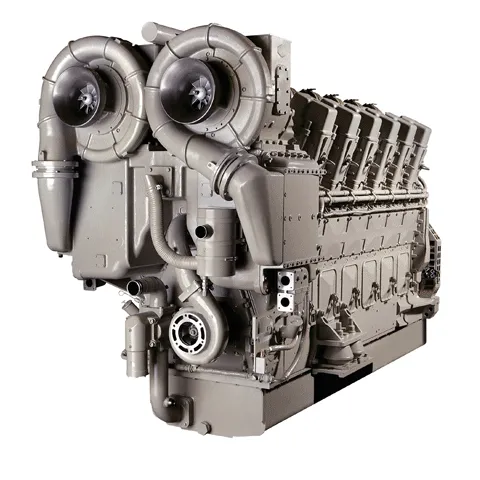Locate High-Quality Imports with Engines For Africa
A Complete Guide to Picking the Right Engine for Your Job
Picking the appropriate engine for your task is an essential choice that can significantly impact its overall success. Each of these elements plays a pivotal function in making sure that your chosen engine not just meets instant goals but likewise straightens with long-lasting desires.
Define Your Job Requirements
Specifying your task requires is a critical action in selecting the ideal engine for effective application. A comprehensive understanding of your project's goals will guide you in recognizing the capabilities and features called for from an engine. Begin by laying out the scope of your project, including the wanted functionality, target market, and the certain end results you aim to attain.
Next, think about the technological demands that align with your task goals. This consists of assessing the compatibility of the engine with existing systems, along with the programming languages and frameworks that will certainly be used. Additionally, analyze the level of scalability needed to fit future growth or modifications in demand.
Spending plan constraints also play a crucial duty in specifying your job requires. Develop a clear financial structure to lead your decision-making process, making sure that the engine picked fits within your budget plan while supplying the required performance.
Evaluate Efficiency Needs

Engines that support horizontal scaling are often better for larger applications. In addition, examine the engine's efficiency under various conditions, such as peak usage scenarios, to ensure it fulfills your dependability criteria.
Consider Convenience of Use
While technical requirements are necessary, the ease of use of an engine can substantially impact the growth process and general job success. An user-friendly user interface, clear documents, and streamlined workflows can drastically lower the discovering contour for designers, allowing them to concentrate on imagination and analytic rather than grappling with complicated tools.
When evaluating an engine's ease of usage, think about the onboarding experience. A well-structured introduction, full with tutorials and sample projects, can help with a smoother shift for new individuals. In addition, the clarity and comprehensiveness of the engine's documents play a critical role; detailed overviews and API referrals can equip developers to troubleshoot and execute functions efficiently.
An engine that enables for very easy alterations can be a lot more easy to use, as programmers can customize it to fit their certain needs without considerable hassle. Eventually, selecting an engine that prioritizes simplicity of use can lead to a much more delightful and effective advancement experience.
Assess Area and Support
The stamina of an engine's area and assistance network can greatly influence a designer's experience and success. A vibrant neighborhood usually suggests a riches of shared expertise, sources, and repairing assistance that can enhance your job's growth process. When examining an engine, think about the dimension and task level of its community. Bigger neighborhoods generally provide a lot more forums, tutorials, and third-party plugins, making it possible for developers to locate solutions much more efficiently.
Moreover, assess the availability of official assistance networks. Dependable documents, receptive customer assistance, and routine updates are crucial for dealing with technological issues and keeping your task on track. Engines For Africa. Active communities additionally cultivate partnership, giving opportunities for networking and responses, which can be very useful, specifically for independent developers or little teams
Furthermore, examine the existence of community-run occasions, such as meetups or hackathons. These gatherings can enhance your understanding of the engine while attaching you with potential partners and experienced individuals. In summary, a robust community and assistance system not just improve advancement however likewise produce an environment helpful to best site discovering and development, ultimately enhancing the probability of your task's success.
Compare Price and Licensing Choices
Budget considerations play a vital duty in selecting the appropriate engine for your job, as the cost and licensing options can substantially impact both temporary costs and long-lasting practicality. Engines For Africa. Various engines use differing pricing frameworks, which can include single purchase fees, membership versions, or revenue-sharing arrangements based on your task's earnings

Certifying options additionally vary significantly. Some engines are open-source, supplying flexibility and community-driven assistance, while others may need exclusive licenses that restrict usage and circulation. Recognizing the effects of each licensing version is important, as it affects ownership legal rights, future scalability, and prospective legal obligations.
Final Thought
To conclude, choosing the ideal engine for a task requires a comprehensive examination of defined job needs, performance needs, ease of usage, area support, and cost factors to consider. By systematically dealing with these critical elements, decision-makers can guarantee alignment with both existing and future task demands. A knowledgeable choice ultimately improves the probability of job success, enabling reliable resource allowance and taking full advantage of possible outcomes within the defined budgetary restrictions.
Picking the appropriate engine for your job is an important decision that can significantly influence its overall success.Specifying your job needs is an essential action in selecting the suitable engine for successful execution. A thorough understanding of your task's goals will assist you in determining the capabilities and functions needed from an this website engine.When you have a clear understanding of your job requires, the next step is to examine the performance requirements of the engine.In final thought, picking the appropriate engine for a job necessitates a thorough evaluation of defined project needs, performance demands, convenience of usage, neighborhood support, and cost considerations.